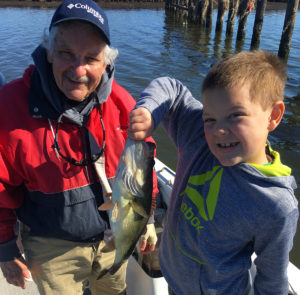Conservation works for America and coastal communities
Tides are shifting in our nation’s capital. Now that COVID recovery legislation has cleared Congress, policymakers are shifting their attention to a massive infrastructure package. This is welcome news for folks in Louisiana, where 158,000 people are unemployed and looking for ways to get back to work.
Conservationists are also eyeing this moment. If Congress can put aside partisanship, we believe an infusion of cash into the Gulf can put people back to work, create habitat for fish and wildlife, increase coastal resiliency, combat climate change, and build more equitable communities.
There are three specific legislative opportunities that hunters and anglers should be talking to their elected leaders about:
Building Resilient Infrastructure and Communities (BRIC)
This pre-disaster mitigation program is administered by FEMA to provide resources to states, local communities, tribes, and territories with the goal of reducing risk from natural disasters. In 2020, there was $500 million available through this program to support communities as they prepare for future catastrophic events. We are asking Congress to set aside 15 percent of future BRIC funds for natural infrastructure projects, which will help create habitat and combat the impacts of climate change.
North American Wetlands Conservation Act (NAWCA)
This U.S. Fish and Wildlife Service grant program invests in local projects to restore wetlands. Over the past two decades, these funds have supported over 3,000 projects impacting 30 million acres. One of these projects is located near Buras, Louisiana where Ducks Unlimited has partnered with local conservation leaders and used NAWCA funds to build wetlands in areas affected by numerous hurricanes over the last 15 years. The incredibly successful project has built more than 2,500 acres of wetland in areas that were open water less than a decade ago, improving fisheries and duck hunting and increasing community resiliency.
When wetlands are improved, communities experience better flood control, erosion prevention, and air quality, plus more sequestered carbon. We are asking Congress to fully fund this program so waterfowl and migratory birds can thrive and people can find work restoring this important habitat.
National Coastal Resilience Fund
This program is used to restore wetlands, marshes, river systems, dunes, beaches, barrier islands, floodplains, and oyster and coral reefs. Funded by Congress and private entities, it is administered by the National Fish and Wildlife Foundation to expand natural features in coastal communities. By fully funding this program, contractors and engineers can get back to work restoring these landscapes and creating habitat for fish and wildlife.
A New Day for the Delta
By prioritizing these items, our leaders can make a real impact in a state that has been hammered by COVID and natural disasters. In the last 12 months, construction employment has declined 13 percent in the Bayou State, opening the door for significant investment to help turn the page on a dark year. But, one area where jobs continue to expand is in coastal restoration work as penalties from the 2010 Deepwater Horizon continue to be directed toward construction of large-scale barrier islands, marsh restoration projects, and the engineering and design (and soon construction) of sediment diversions.
The Mississippi River Delta has lost over 2,000 square miles of land since the 1930s and continues to lose a football field of wetlands every 100 minutes. Investments in restoring this critical fish and wildlife habitat not only improve fishing and hunting opportunities across the Gulf and throughout the Mississippi River Basin, but also means high-paying jobs for coastal residents.
We believe with the right focus, we can improve the land, water, and fish and wildlife resources that sustain our communities.
To learn more about the Conservation Works for America campaign, click here.







Funding coastal restoration is an incredibly good way to safeguard our coastal towns, cities and homes against the increasing ocean sea levels. Especially vital is restoring the Mississippi River Delta in Louisiana. This will lessen storm damage and protect New Orleans from being swallowed up by the Gulf.
I agree our coastal areas of the USA should be prioritized especially the Gulf Restoration Act. As a conversationalist & environmentalist I also agree we need to stop chemical (Monsanto) Bayer from producing & manufacturing toxic, cancer producing chemicals used in growing our food, agriculture as well as all chemical producing & manufacturing chemicals. Thank you for your good works.